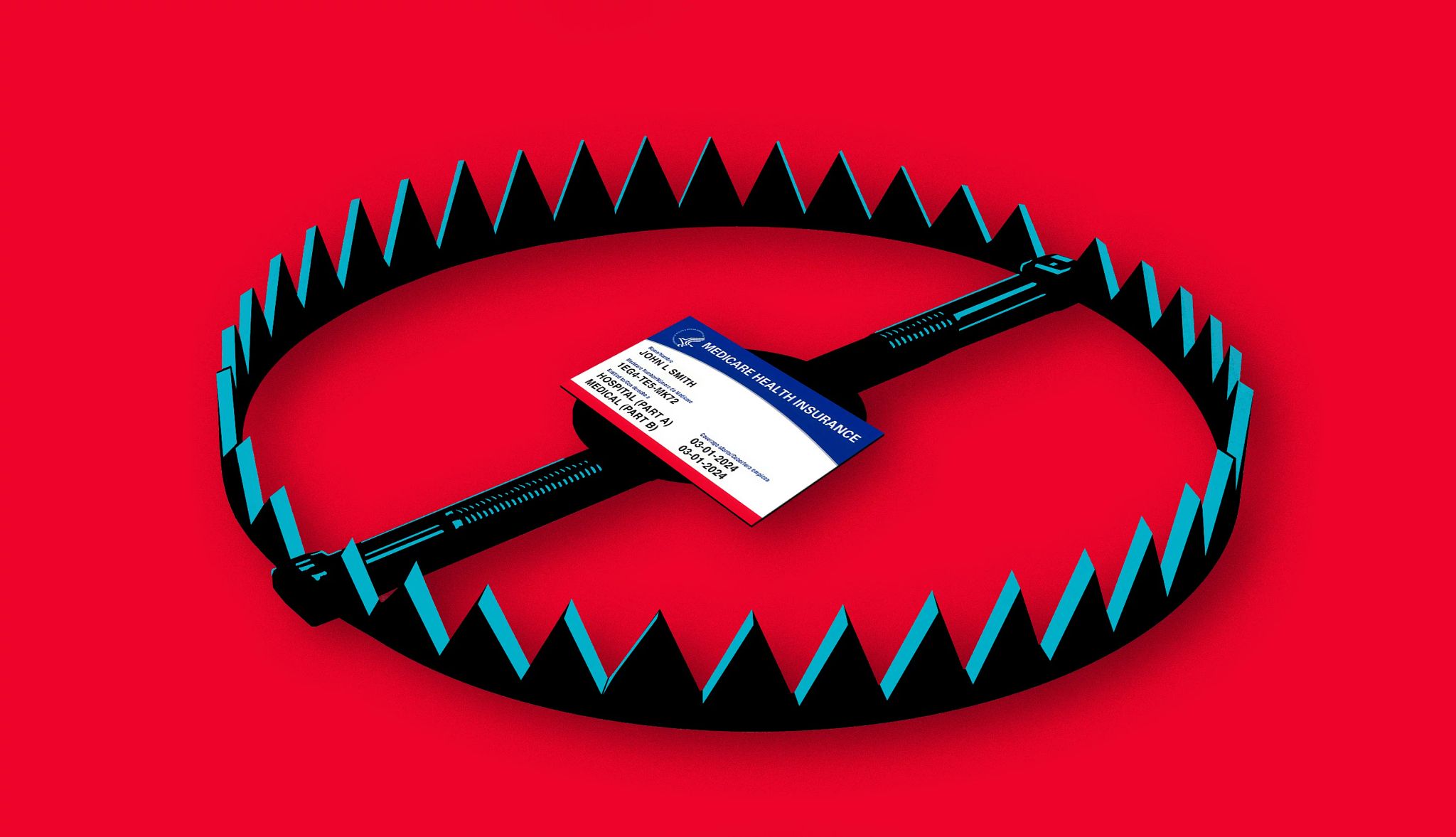AARP Hearing Center


In this story
Common scams • Red flags • Protect yourself • If you’ve been targeted
Medicare has been a favorite target of scammers from virtually the moment the program was signed into law in July 1965. And a favorite time for criminals to perpetrate their scams is during the open enrollment period, when enrollees can make changes to their plans — from October 15 through December 7.
You may receive a phone call from someone claiming to be with Medicare, for example. They may know your personal details, like your date of birth or address. Don’t let that convince you that the caller is legitimate; scammers can purchase or find such data easily enough.
Unfortunately, many people don’t realize that Medicare won’t contact you out of the blue. Victims engage with these criminals, sometimes giving away personal financial information and Medicare details.
Scammers can then use that personal information to commit identity fraud (stealing money from victims’ bank accounts, among other potential fraud crimes). They might use the stolen Medicare number to make bogus claims, typically for medical equipment, genetic testing kits, diabetic supplies or deceptive hospice enrollments.
Some criminals who defraud Medicare can also cause unexpected harm to patients. Mike Cohen, the headquarters operations officer at the Office of Inspector General, U.S. Department of Health and Human Services (HHS), says there are cases where perpetrators bill Medicare in patients’ names for certain equipment, such as wheelchairs, or lab tests that are a “lifetime” benefit. That means you only get the item or service once. And if that one opportunity is squandered due to fraud, the benefit is no longer available when the beneficiary actually needs it later.
Fraud, along with errors and abuse, causes Medicare to lose an estimated $60 billion annually. — although, as the Senior Medicare Patrol notes, the exact figure is impossible to measure.
Common Medicare scams
New card offers. Criminals pretend to be from Medicare and tell beneficiaries that they will receive a new Medicare card with a chip or one that is plastic instead of paper. (Medicare cards are paper and none have a chip.) They may even say the new card includes additional benefits, such as a gift card.
“The scammer will say they need to confirm the Medicare ID and other personal information. In some cases, they tell the person they just need to provide banking account information to make sure they can continue paying their premiums,” says Kim McKenna, Senior Medicare Patrol (SMP) coordinator for the Washington State Office of the Insurance Commissioner.
Submission of false claims. “[Criminals] may use a person’s ID to contact a doctor’s office and request an order for medical equipment or tests, then submit claims without the beneficiary even knowing,” McKenna says. Scammers then get reimbursed by Medicare for the fake services.



































































More From AARP
Medicare Flex Card Scams
Trust your instinct. If something sounds too good to be true, it probably is
8 Scams That Senior Medicare Patrols Are Seeing
Old cons are recycled to take advantage of news reportsWhat to Do If You've Just Been Scammed
How one woman worked quickly — with help — to avoid being charged through PayPal